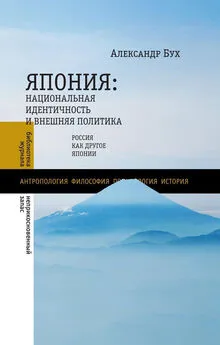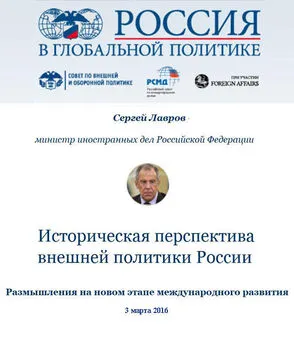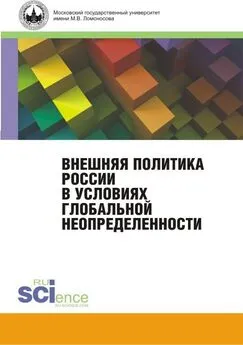Александр Бух - Япония. Национальная идентичность и внешняя политика. Россия как Другое Японии
- Название:Япония. Национальная идентичность и внешняя политика. Россия как Другое Японии
- Автор:
- Жанр:
- Издательство:Array Литагент «НЛО»
- Год:2014
- Город:Москва
- ISBN:978-5-4448-0333-2
- Рейтинг:
- Избранное:Добавить в избранное
-
Отзывы:
-
Ваша оценка:
Александр Бух - Япония. Национальная идентичность и внешняя политика. Россия как Другое Японии краткое содержание
Исследование не ограничивается частными вопросами русско-японских отношений, поскольку тематизация отношений между национальной идентичностью и внешней политикой требует критического анализа основ современной теории международных отношений. Таким образом, книга адресована не только специалистам по вопросам русско-японских отношений, но и широкому кругу ученых в области международных отношений.
Александр Бух – доцент Высшей школы гуманитарных и социальных наук при университете Цукуба (Япония). Выпускник Токийского университета (магистерская степень) и Лондонской школы экономики (докторская степень в области международных отношений).
Япония. Национальная идентичность и внешняя политика. Россия как Другое Японии - читать онлайн бесплатно полную версию (весь текст целиком)
Интервал:
Закладка:
Harrison, S. (2007) The Indigenous Ainu of Japan and the «Northern Territories Dispute». MA thesis submitted to the Department of History. University of Waterloo, Ontario, Canada?http://uwspace.uwaterloo. ca/bitstream/10012/2765/1/Scott%20Harrison_GSO_Thesis.pdf Accessed on 14 June 2008.
Hasegawa, T. (1995) Continuing Stalemate. IN GOODBY, J., IVANOV, V. ą SHIMOTOMAI, N. (Eds) «Northern Territories» and Beyond. London, Praeger.
– (1998) The Northern Territories Dispute and Russo-Japanese Relations: Between War and Peace 1697–1985, Berkley, Univ of California at Berkley.
– (1998a) The Northern Territories Dispute and Russo-Japanese Relations: Neither War nor Peace 1985–1998, Berkley, University of California.
– (2000a) Why Did Japan and Russia Fail to Achieve Rapprochement in 1991–1996? IN ROZMAN, G. (Ed.) Japan and Russia: The Tortuous Path to Normalization 1949–1999. New York, St. Martin’s Press.
– (2000b) Japanese Perceptions of the Soviet Union and Russia in the Postwar Period. IN ROZMAN, G. (Ed.) Japan and Russia: The Torturous Path to Normalization 1949–1999. New York, St. Martin’s Press.
– (2007) Japan’s Strategic Thinking toward Asia in the First Half of the 1990s. IN ROZMAN, G., TOGO, K. ą FERGUSON, J.P. (Eds) Japanese Strategic Thought Toward Asia. New York, Palgrave Macmillan.
Hasegawa, T., Haslam, J. ą Kuchins, A. (1993) Russia and Japan: An Unresolved Dilemma between Distant Neighbors, Berkeley, International and Area Studies University of California at Berkeley.
Hattori, M. (2004) Trade between Japan and Russia in 2003. Roshia tōō bōeki chōsa geppo , 41–45.
Hayes, L. (2001) Japan and the Security of Asia, Lanham, Maryland, US, Lexington Books.
Hill, C. (2003) The Changing Politics of Foreign Policy, London, Palgrave.
Hiraishi, N. (2003) The Formation of Maruyama Masao’s Image of Japanese Intellectual History during the War Period. Social Science Japan, 6, 241–254.
Hirakawa, S. (1998) Japan’s Turn to the West. IN WAKABAYASHI, T. B. (Ed.) Modern Japanese Thought. Cambridge, Cambridge University Press.
Hitchcock D. (1971) Joint Development of Siberia: Decision-Making in Japanese-Soviet Relations. Asian Survey, 11, 279–300.
Hog, M. (2001) Social Identity and the Sovereignty of the Group. IN SEDIKIDES, C. ą BREWER, M. (Eds) Individual Self, Relational Self, Collective Self. Ann Arbor, Taylor ą Francis.
Hook, G. (1988) The Erosion of Anti-militaristic Principles in Contemporary Japan. Journal of Peace Research, 25, 381–394.
– (1996) Militarization and Demilitarization in Contemporary Japan, London, Routledge.
Hook, G., Gilson, J., Hughes, C. ą Dobson, H. (2005) Japan’s International Relations, New York, Routledge.
Hopf, T. (2002) Social construction of international politics: identities ą foreign policies, Moscow, 1955 and 1999, Ithaca, Cornell University Press.
Hughes, C. (1999) Japan’s Economic Power and Security: Japan and North Korea, London, Routledge.
Hughes, L. (2007) Why Japan Will Not Go Nuclear (Yet). International Security, 31, 67–96.
Huntington, S. (1993) The Clash of Civilizations. Foreign Affairs, 72.
Igarashi, Y. (2000) Bodies of Memory, Princeton, NJ, Princeton Univ Press.
Iida, Y. (2002) Rethinking Identity in Modern Japan, London, Routledge.
IISS (2002) The Military Balance. London, International Institute for Strategic Studies.
Inoue, T. (1999) Critical Perspectives on the «Asian Values» Debate. IN BAUER, J. ą BELL, D. (Eds) The East Asian Challenge for Human Rights. Cambridge, Cambridge University Press.
Iriye, A. (1981) Power and Culture, Cambridge, Massachusetts, Harvard University Press.
– (1992) China and Japan in the Global Setting, Cambridge, Mass, Harvard Univ. Press.
Itō, K. (1987) Continuity in the Pattern of Russo-Soviet External Behavior. IN NIISEKI, K. (Ed.) The Soviet Union in Transition. London, Japan Institute of International Affairs/Avebury.
Ivanov V. (2005) Russia and Japan Beyond 2005. Erina Report, 66, 10–16.
– (2005a) The 2005 Japan-Russia Energy Forum. Erina Report, 64, 5–19.
Ivanov, V. ą Smith, K. (Eds) (1999) Japan and Russia in Northeast Asia: Partners in the 21st Century, London, Praeger.
Iwashita, A. (Ed.) (2005) Siberia and the Russian Far East in the 21st Century: Partners in the «Community of Asia», Sapporo, Slavic Research Center.
Izumi, H. (1993) Tokyo Policy Toward North Korea and Korea Reunification. IN WONG, G. W. (Ed.) Korean Peninsula Developments and US-Japan-South Korea Relations. Washington DC, The Center for Strategic and International Studies.
Izumikawa, Y. (2005) The Sources of Japanese Antimilitarism: the Fear of Entrapment and Japanese Pacifist Discourse. Annual meeting of the International Studies Association. Hilton Hawaiian Village, Honolulu, Hawaii, ISA.
Japan Newspaper and Publishers Association (1951) The Japanese Press 1951, Tokyo. Nihon Shinbun Kyōkai.
– (1952) The Japanese Press 1952, Tokyo.
JBIC (2007) Overview of Activities in Fiscal Year 2006. Tokyo, Japan’s Bank of International Cooperation.
Johnson, A. (1995) Cultural Realism, Princeton, New Jersey, Princeton University Pres.
Johnson, C. (1982) MITI and the Japanese Miracle, Stanford, Stanford University Press.
– (1992) Japan in Search of a «Normal» Role. Pacific Security Relations After the Cold War. Hong Kong, IGCC. http://igcc.ucsd.edu/pdf/policypapers/pp03.pdf
Johnson, S. (1988) Japanese Through American Eyes, Stanford, Stanford University Press.
Kase, Y. (2001) The Costs and Benefits of Japan’s Nuclearization: An Insight into the 1968/70 Internal Report. The Nonproliferation Review, 8(2), 55–68.
Katzenstein, P. (1996) Cultural Norms and National Security-Police and Military in Postwar Japan, Ithaca, Cornell University Press.
– (Ed.) (1996a) The Culture of National Security: Norms and Identity in World Politics, New York, Columbia University Press.
Katzenstein, P., Keohane, R. ą Krasner, S. (1998) International Organization and the Study of World Politics. International Organisation, 52, 645–685.
Katzenstein, P. ą Okawara, N. (1993) Japan’s National Security, Ithaca, Cornell University.
Katzenstein, P. ą Okawara, N. (2004) Japan and Asia-Pacific Security. IN SUH, J., KATZENSTEIN, P. ą CARLSON, A. (Eds) Rethinking Security in East Asia. Stanford, Stanford University Press.
Katzenstein, P. ą Okawara N. (2001/2002) Japan, Asia-Pacific and the case for Analytical Eclecticism. International Security, 26, 153–185.
Katzenstein, P. ą Sil, R. (2004) Rethinking Asian Security: A Case for Analytical Eclecticism IN SUH, J. J. KATZENSTEIN P. ą CARLSON, A. (Eds) Rethinking Security in East Asia. Stanford, Stanford University Press.
Katzenstein, P. ą Tsujinaka, Y. (1991) Defending the Japanese State, Ithaca, Cornell East Asia Series.
Keal, P. (2003) European Conquest and the Rights of Indigenous Peoples, Cambridge, Cambridge University Press.
Keene, E. (2002) Beyond the Anarchical Society, Cambridge, Cambridge University Press.
Kim, S. ą Dittmer, L. (1993) Whither China’s Quest for National Identity? IN KIM, S. ą DITTMER, L. (Eds) China’s Quest for National Identity. Ithaca, Cornell University Press.
Kimura, H. (1980) Japan-Soviet Relations: Framework, Developments, Prospects. Asian Survey, 20, 707–725.
– (1991) Gorbachev’s Japan Policy. Asian Survey, 31, 798–815.
– (1999) Politics and Economics in Russo-Japanese Relations. IN HOPF, T. (Ed.) Understandings of Russian Foreign Policy. Pennsylvania, The Pennsylvania State University Press.
– (2000) Distant Neighbors: Japanese-Russian Relations under Brezhnev and Andropov, Armonk, New York, M.E. Sharpe.
– (2000a) Distant Neighbors: Japanese-Russian Relations under Gorbachev and Yeltsin, Armonk, New York, M.E. Sharpe.
– (2006) The Northern Territories Issue: Japanese-Russian Relations and Concerns in Japan. IN HARA, K. ą JUKES, G. (Eds) New Initiatives for Solving the Northern Territories Issues between Japan and Russia: An Inspiration from the Aland Islands. Mariehamn/Aland, CSIS.? http://www.csis.org/media/csis/pubs/issuesinsights_v07n04.pdf? accessed on 21 April 2008.
Kishino, H. (1992) Striking a Balance between Economic Assistance and Territorial Claim. Tokyo, IIGP.
Kissinger, H. (1985) Threat to US-Japan Relations. Seattle Times. Seattle.
Kitaoka, S. (1992) Diplomacy and Military in Showa Japan. IN GLUCK, C. (Ed.) Showa: The Japan of Hirohito. New York, W.W. Norton ą Company.
Koo, M. (2005) Economic Dependence and the Dokdo/Takeshima Dispute Between South Korea and Japan. Harvard Asia Quarterly, 9.
Kowner, R. (2002) Deconstructing the Japanese National Discourse: Laymen’s Beliefs and Ideology. IN DONAHUE, R. (Ed.) Exploring Japaneseness. Westport, Greenwood Publishing.
Kurino, O. (1982) Thought and Ideas in the Post War Diplomacy of Japan: A Study of Causes for Confusion. Kokusai Seiji, 71, 160–172.
Kuriyama, S. (1957) Historical Aspects of the Progress of International Law in Japan. The Japanese Annual of International Law, 1, 1–5.
Kushner, B. (2002) A Most Successful «Failure»: World War Two Japanese Propaganda. PhD Thesis. Department of History, Princeton University.
– (2006) The Thought War: Japanese Imperial Propaganda, Honolulu, Hawai University Press.
Landor, A. ([1893] 1970) Alone with the Hairy Ainu, United States, Johnson Reprint Corporation.
Lapid, Y. (1996) Culture’s Ship: Returns and Departures in IR Theory. IN LAPID, Y. ą KRATOCHWIL, F. (Eds) The Return of Culture and Identity in IR Theory. Boulder, Lynne Rienner.
Liebersohn, H. (1994) Discovering Indigenous Nobility: Tocqueville, Chamisso, and Romantic Travel Writing. The American Historical Review, 99, 746–766.
Littlewood, I. (1996) The Idea of Japan, London, Martin Secker and Warburg Limited.
Mark, E. (2006) «Asia’s» Transwar Lineage: Nationalism, Marxism, and «Greater Asia» in an Indonesian Inflection. Journal of Asia Studies, 65, 461–493.
Maruyama, M. (1963) Thought and Behavior in Modern Japanese Politics, London, Oxford University Press.
Matsumoto, S. (1971) The Significance of Nationalism in Modern Japanese Thought: Some Theoretical Problems. The Journal of Asian Studies, 31, 49–56.
Maull, H. (1990–1991) Germany and Japan: The New Civilian Powers. Foreign Affairs, 69, 91–106.
McDowell, E. (1990) After the Cold War, the Land of the Rising Threat. New York Times. 18 June 1990 electronic ed. www.nytimes.com accessed 05 May 2008
McSweeney, B. (1999) Security, Identity and Interests, UK, Cambridge University Press.
Mendel, D. ([1961] 1971) The Japanese People and Foreign Policy, Westport, Greenwood Press.
– (1970) Japan’s Defense in the 1970s: The Public View. Asian Survey, 10, 1046–1069.
Mendelson, S. ą Glenn, J. (2000) Democracy Assistance and NGO Strategies in Post-Communist Socieites. Carnegie Endowment Working Papers. Washington, Carnegie Endowment for Peace. http://www. carnegieendowment.org/files/final.pdf
Читать дальшеИнтервал:
Закладка:








![Игорь Иванов - Внешняя политика России в эпоху глобализации [Статьи и выступления]](/books/1090951/igor-ivanov-vneshnyaya-politika-rossii-v-epohu-globa.webp)

